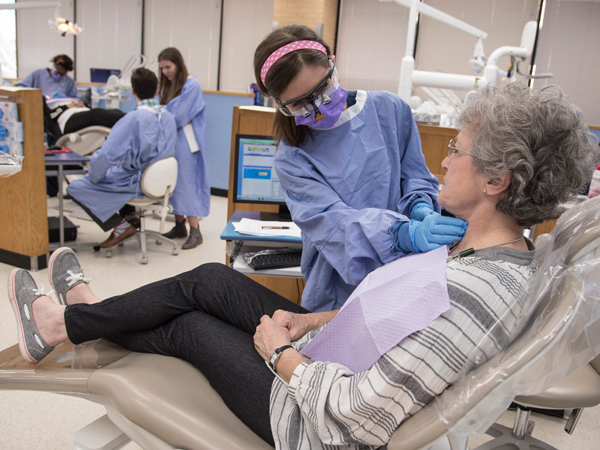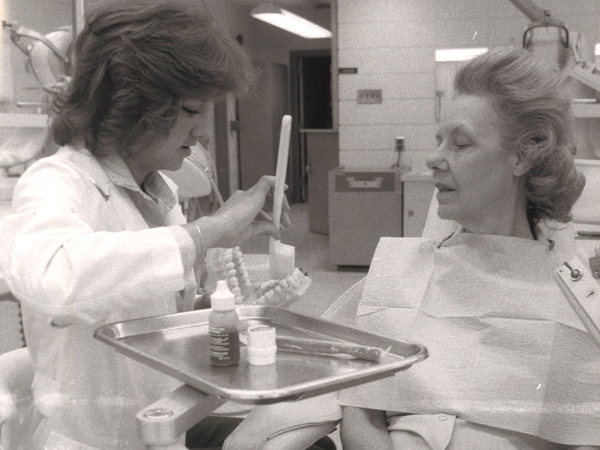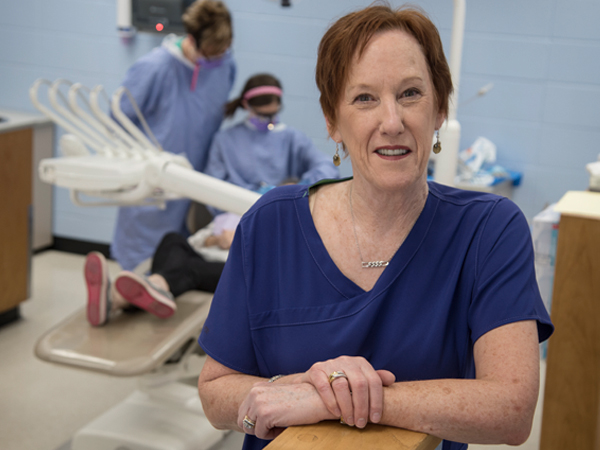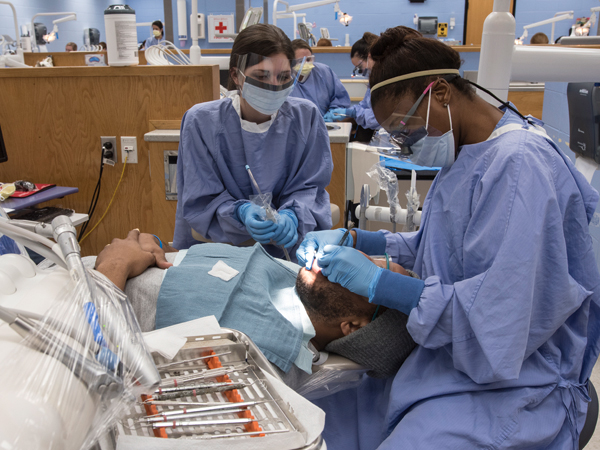Dental Hygiene move promotes interprofessional education

Try to imagine a dentist's office without a dental hygienist. It's difficult. A dentist and a dental hygienist go together like peanut butter and jelly. There are few, if any, dental offices without a hygienist to provide twice yearly cleanings dentists recommend, especially to patients who eat a lot of PB&J.
It makes sense that two professions that practice together would train together. Such an affiliation will soon be case at the University of Mississippi School of Dentistry.
Pending approval by the Mississippi Institutions of Higher Learning board of trustees in April, the dental hygiene program at the School of Health Related Professions, or SHRP, will become a part of the dental school.
The dental hygiene program began in 1970 and was one of the first three programs to be a part of the newly formed School of Allied Health - later to be called SHRP - in 1972. The school included programs for medical technology, dental hygiene and medical record librarianship when it first opened under the leadership of Dr. Thomas Freeland, the first dean.

The first graduating class, comprised of eight women from throughout the state, earned a certificate in dental hygiene in 1972.
The women recorded their thoughts in an essay saying that they began classes on August 31, 1970.
“We were ambitious and determined to meet the challenge of a professional career, as well as a new program in dental hygiene,” the essay said. “All of us were accustomed to the pace of basic college work but were shocked to find that, compared to our previous college experience, a professional program requires longer hours as well as vigorous studying each night.”
In 1975, before the construction of the brand new School of Dentistry was complete, the dental hygiene program opened its clinic to the first dental students.
Dr. Beckie Barry, professor and chair of the Department of Dental Hygiene, said that in 1977 satellite programs were begun at Meridian Community College and Northeast Mississippi Community College. These programs were funded by an Allied Health Project Grant to meet the increased need for dental hygienists in the state. They were in place until 1980.

The department offered its first Bachelor of Science in Dental Hygiene to the Class of 1987. Six years later, one of the first graduates of the certificate program, Beth Bryant of Brandon, returned to earn her bachelor's degree in the face-to-face degree completion program.
Although hygiene clinic space was moved to the dental school in 1995, students from the different schools did not study together nor treat patients together. In fact, Barry said that the hygiene program was required to hire outside dentists to fulfill the state law that hygienists must practice under the supervision of a dentist.
Dr. David Felton, dental school dean and professor of care planning and restorative sciences, said that the move makes sense because hygienists are a critically important part of dentistry. He sees it as an opportunity to introduce interprofessional education into the school.
“We graduate students who are going to go out and hire hygienists, but they have no organized interaction with them whatsoever here,” Felton said. The students do not interact academically, socially or during patient care.
“I think there are going to be opportunities allowing dental hygiene and dental students to interact and develop a better understanding of the dental team concept,” Barry said.
Dr. Jessica Bailey, dean of SHRP, said that the move to the dental school is the best decision for beginning to improve oral health in the state.
“Dr. Felton and I began discussing the possibility of moving the dental hygiene program to the SOD very early after his acceptance of the dean's position,” Bailey said. “We have always agreed that our hygiene students should work along-side the dental students to establish a professional relationship that will span their careers. That collaboration will be needed to combat the oral health disparities in our population.”

The SOD recently hosted its inaugural Dental Mission Week, and everyone from the Dental Hygiene Department was on hand to assist in dental triage and radiology and to provide dental hygiene services and post-operative care.
“That was a very worthwhile experience for both groups to see,” Felton said. “There was a collaborative effort that typically does not happen with the current program organization.”
“The SOD and dental hygiene programs provided oral care to a very deserving group of our local population and experienced the satisfaction of interprofessional practice to improve lives,” Bailey said.
“We will sorely miss the program in SHRP, but we believe it is an important move for the administration, faculty and staff to advance the mission of making Mississippians healthier.”


